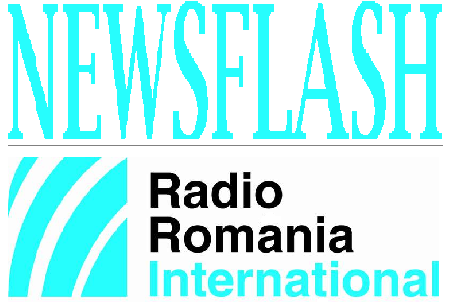April 18, 2014 UPDATE
Click here for a roundup of domestic and international news

România Internațional, 18.04.2014, 21:02
In his Easter sermon, Daniel, patriach of the Romanian Orthodox Church, which is the main religion in Romania, has urged the believers that on this occasion they bring joy into the hearts of the orphans, the elderly, the needy or the lonely through a good word or deed and asked them not to forget the Romanians living abroad. In his Easter message the minister delegate for the Romanians all over the world Bogdan Stanoevici told the Romanians living outside the country that they are not alone at the same time assuring them of his full support. He wished all these Romanians to keep the Romanian spirit alive as well as their identity through authentic traditions and they may be happy together with their loved ones.
Romanian Foreign Ministry has completed a list with the polling stations abroad where the Romanians will cast their ballot in the EU parliamentary election on May 25th. The total number of these stations is currently standing at 190. According to the Ministry, the polling stations will be available in Romania’s diplomatic and consular missions, on the premises of various cultural institutions abroad as well as in operation theatres in Afghanistan. The final list of these polling stations has been completed taking into account previous experiences in staging EU parliamentary election and the number of voters in the previous elections of 2007 and 2009. The largest number of polling places for the Romanians abroad will be in Spain, 18; Italy comes next with 15, the Republic of Moldova with 8, and France with 6. For the Romanians in the USA, Germany and Belgium, five polling stations will be made available in each of these countries. The Romanians in Afghanistan will vote in five polling stations, while in Serbia, Hungary, Great Britain and Canada, they will have access to four polling stations. Ukraine and Israel will each have 3 polling stations for the Romanians to cast their ballot.
Romanian president Traian Basescu has sharply condemned the terror attack on Thursday against the UN base in southern Sudan, which left scores of dead and wounded. The head of the Romanian state has described the attack as of extreme gravity, being directed against civilians and those who were supposed to offer them protection. According to Basescu, Romania has joined the measures taken by the international community so as to avoid such bloody attacks in the future. The Foreign Ministry in Bucharest has also condemned the attack and called on the authorities in Southern Sudan to take measures to ensure the protection of refugees fleeing the conflict in that country.
Several Hungarian policemen at the Gyula-Varsand border checkpoint with Romania have been detained on corruption allegations. According to prosecutors they are suspected of having asked money and various objects from foreign truck drivers entering Hungary. In another move the head of the Border Policy in Gyula and another high-ranking official have been sacked and no explanations have been provided.
The interim pro-European authorities in Ukraine on Friday pledged a large-scale decentralization and a special status for the Russian language in order to reduce tensions in the east of the country, currently on a brink of a pro-Russian insurrection. Prime Minister Arseniy Yatsenyuk and president Oleksandr Turchynov have announced their readiness to implement a large-scale constitutional reform in order to offer significant prerogatives to the regions and a special status for the Russian language. The announcement came a day after the international agreement in Geneva, between Russia, Ukraine, the EU and the USA on defusing the tension in the former soviet republic. The document provides, among other things for disarming the illegal armed groups and for the evacuation of the pro-Russian activists from the buildings they occupied in eastern Ukraine. We recall that these pro-Russian activists refused to leave the buildings calling instead for the resignation of the interim authorities in Kiev. The Romanian Foreign Ministry has hailed the outcome of the meeting in Geneva, saying that the measures proposed are a first step to reduce tensions in eastern Ukraine.
NATO could step up the installation of the anti-missile shield in Europe given the tensions with Russia, US defence secretary Chuck Hagel was quoted by the National Journal as saying. According to the same sources, the statement of the Pentagon official came after the meeting he had with his Polish counterpart Tomasz Siemoniak in Washington on Thursday. Hagel said that for the moment a programme aimed at fulfilling the commitments to protecting the interests of Poland, Romania and other NATO partners, is being carried on. The US official has underlined that the anti-ballistic interceptors to be installed in Europe are not a threat to Russia. The programme provides for the installation of elements of the anti-missile shield in Romania until 2015 and in Poland until 2018.




























